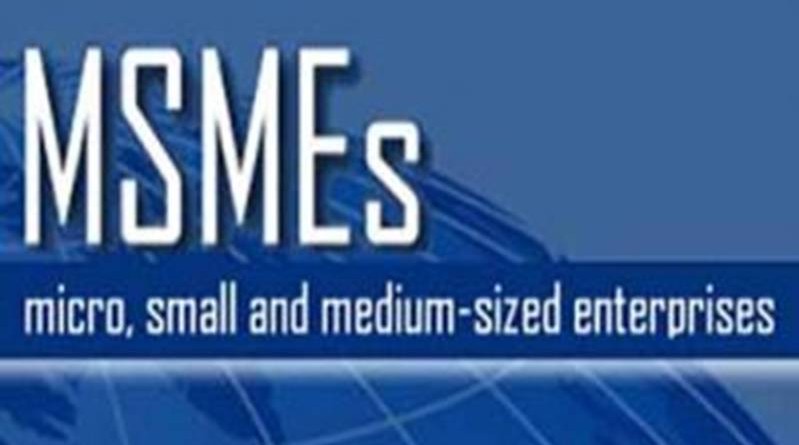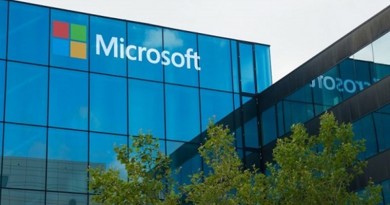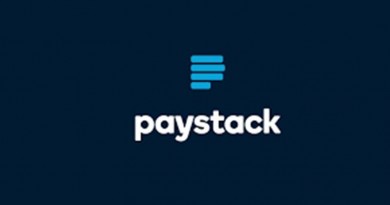We have given 15,000 MSMEs access to finance – Abuja Enterrise Agency
To what extent is the Abuja Enterprise Agency creating jobs and alleviating poverty in the FCT looking at its mandate?
The Abuja Enterprise Agency (AEA) is the FCT administration’s vehicle for the development and promotion of Micro, Small and Medium Enterprises for the territory and its environs. Our mission is to create jobs, generate wealth and, to a large extent, reduce poverty in the territory. The agency was established in 2006 and we have done remarkably well since then because if you are to go by the numbers, the agency has been able to create thousands of jobs and give access to finance to over 15,000 MSMEs in the FCT, either as individuals or as cooperative groups.
How does the agency carry out its task of job creation?
A client, for instance, walks into the office and says ‘I have this idea; I need you to guide me’. Once we have such client, we don’t let him/her go until we are sure the proposed business is established.
Another instance is using our outreach services. We go out to communities to look for young men and women who have ideas and see how we can nurture the idea for them until it becomes a business. Largely, our client base is more from the outreach services that we are able to carry out. We carry out the outreach periodically.
The Business Advisory Unit helps develop these clients that have ideas, for start-up. For the existing businesses, we sit with the clients and discuss what they do, the challenges they face, the requirements they need to access some of the services and then we also proffer solutions.
With the present administration’s plans on entrepreneurship, do you see more youths and business people come out for the services?
The FCT administration has keyed into the Federal Government’s policy of job creation/entrepreneurship. The administration’s target is that the agency should be able to create 20,000 jobs between 2015 and 2020. So far the agency has created 14,215 jobs between 2015 to date. This means we shall surpass the target, all things being equal.
What are the key issues you noticed in your interaction with the Micro, Small and Medium Enterprises (MSMEs)?
The critical challenges faced by the MSMEs are largely two. One is lack of knowledge in managing the finances given to them to start business. Finances may be available in large quantum but if you give it to an individual or group of individuals who do not know how to manage them, the finances will go down the drain and no business will be there.
The second challenge that is being addressed by this administration is that of access to finance.
For the AEA, how can MSMEs access the funds you have?
It’s a simple process. A client walks into the agency and registers as a client of the agency. A counsellor will be attached to him/her for a period and the services you require will be given to you. There are no stringent requirements for the disbursement of this loans, all the clients requires is to come with an application, fill a form and return it and bring two guarantors that we can certify. So long as your guarantor says he/she will stand for you in case of any default, that is all. There are no securities attached to it.
What is the range of the amount given as loans?
The range starts from N50,000, which is the minimum, to N5m which can be given to a client depending on the viability of the business and the commitment of the client and his/her capacity to pay back.
Does your agency train MSMEs in managing resources?
Oh yes. What we normally do is that after helping a client to establish his/her business, we take you up for 48 months. We don’t just let you go. Even after the 48 months, we have to evaluate your performance and see that you are doing well. If you have not done very well, the loan that has been given to you will be reviewed to ensure that gaps are taken care off.
How soon are those granted loans required to repay them?
We have three platforms on which we give out loan facilities to our clients. One is the MSMEs Fund i.e money gotten from the CBN for MSMEs. For this the client can access the funds and pay back, depending on the sector, in three years minimum i.e for those that are in other businesses. But for those in agriculture, it is being extended to up to five years. The former has a moratorium of six months before you start paying, while with the latter repayment starts after one year i.e those that are to access the funds for agriculture.
Tell us more about the One Village, One Product (OVOP) programme of the agency?
It is a concept that came from our staff’s interaction with a Japanese corporation. Our staff were privileged to go to Japan in 2013/14 and they saw what the Japanese did in helping their MSMEs work to a high grade that helped them contribute to their country’s GDP. We replicated it in such a way that it will give us the desired result.
We have three centres that we have created; one is for shea butter in Rimba and one is in Nuku communities in Abaji area council of the FCT. The centres are doing well but not satisfactorily because there are challenges we have identified which we are addressing now.
The other community deals with cassava processing in Chikuku, Kwali Area Council. The other is fish rearing business in Bwari.
How soon are you going into more communities to start OVOP?
The FCT administration has granted us approval to establish 40 of these centres this year. What we are waiting for is for the budget of the FCT to be approved. Once approved and the funds are accessed, we will go to the communities.
The FCT has over 860 communities. Those 40 centres will cut across the six area councils of the territory. We will soon embark on that.
Are you satisfied with the MSMEs clinic that the agency co-hosted with the office of the Vice President last year and what were the things you came away with?
We targeted about 5000 participants (MSMEs) but we ended up with about 12,500 participants. Out of the 5000 participants, we were looking at 1000 people to exhibit but we ended up having over 4000 exhibitors. That showed us that problems exist and the MSMEs require interventions. It was an eye-opener for us.
It was very much overwhelming but exciting in the sense that we saw that the MSMEs in the FCT are willing to either key into the administration’s policy by creating jobs for themselves and their families or readily available for any intervention the government is going to give to them.
Tell us more about the One-Stop-Shop which was to come up after the clinic?
The One-Stop-Shop is a fallout of the clinics that were held last year. It was a requirement from the Office of the Vice President that for every state that conducted the MSMEs clinic, they should be able to establish the One-Stop-Shop. The idea of the One-Stop-Shop is to bring all the MDAs (the Ministries, Departments and Agencies) that have something to do directly or indirectly with the MSMEs and they will all be housed under one roof as an ecosystem.
A client can walk into the shop and he will find all the MDAs that he required right there on the spot. He does not have to walk out of the shop to find another agency to conduct his business. That will go a long way in minimising the challenges of the MSMEs.
Once the One-Stop-Shop is on and all the agencies are there, we would be able to sensitise clients and make them know that the shop exists and they can go and transact their business.
How soon will the shop commence business?
We have obtained approval for it. Work has gone to an advanced level, in the sense that we have written to all the MDAs involved. Some have responded positively and we are at the point of procuring the equipment and furniture for the shop. It is our hope that by July 2018 ending, we should be able to commission the shop.
By Victoria Onehi, DAILYTRUST.COM.NG




